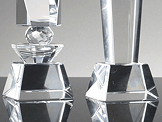 For decades, schools have followed a familiar model—structured lessons, fixed curricula, and assessments that measure success through standardised testing. But what if education didn’t have to look like this? What if it was designed to prepare students for a world where artificial intelligence is reshaping the workforce?
For decades, schools have followed a familiar model—structured lessons, fixed curricula, and assessments that measure success through standardised testing. But what if education didn’t have to look like this? What if it was designed to prepare students for a world where artificial intelligence is reshaping the workforce?
That’s exactly what two of the world’s most successful entrepreneurs, Elon Musk and Richard Branson, have set out to do with their own educational institutions. Both men believe traditional schooling fails to equip students with the skills they need in an AI-driven future. Both have founded institutions that reject a one-size-fits-all approach to learning.
Musk argues that many students graduate without relevant job skills and believes that children need modern teaching that uses interactive learning methods to create more engaging and personalised learning about subjects that are relevant in today’s workplace.
Through his Astra Nova School, Musk champions an approach that prioritises problem-solving over test scores. The curriculum – and the entrance criteria – is built around ‘conundrums"—real-world, open-ended questions ‘designed to help you disagree, constructively’. Students, aged 10-15 and from around the world, are offered courses as diverse as Estimation – the science of ‘close enough’; Math and science communication; Debate and public speaking; Digital Electronics; Cruciverbalists – crosswords and language puzzles; Around the world in 8 weeks and many more. Astra Nova stresses that it is an ‘experimental’ school and that as such the curriculum changes each term.
Branson’s approach to Dyslexic University stems from how his book-learning based education made him feel he was stupid - until he realised that his brain processed information in a different way to that demanded by traditional schooling, and that being dyslexic was actually a ‘superpower’ and not a limitation. As AI learns to recall knowledge faster and better than humans, research finds that Dyslexic Thinking skills – the skills that AI cannot replace – are the most in demand skills in every job, across all sectors, globally, right now.
Dyslexic U, supported by the UK’s Open University is also global and online. Through a series of free, one hour courses covering a range of professions and industries, it aims to help people with dyslexia learn more about their dyslexic thinking skills, be inspired by their differences, and harness their brain’s processing power as a positive advantage.
It’s also aimed at non-dyslexic people, to help them understand dyslexic thinkers and how they think, view and operate in the world. It teaches them how to ‘think like a dyslexic’, arguing that dyslexic thinking—an ability to see patterns, make unexpected connections, and think in non-linear ways—is a key skill for jobs that AI struggles to replicate. Dyslexic thinking fosters creativity and innovation, essential in industries where automation is replacing routine tasks.
What can Australian education learn from Branson and Musk?
Australia has a strong tradition of private schools that offer high-quality education and greater choice for parents. Yet, while independent, they still follow a structured curriculum overseen by governing bodies. Richard Branson and Elon Musk have both founded educational institutions based on a radically different vision—one where students learn through real-world challenges, develop skills that employers actually need, and are encouraged to think in ways that AI can’t replicate.
So, can Australian schools learn from these models? While mainstream education continues to evolve, the rise of entrepreneur-led learning initiatives suggests a growing demand for change. Should schools move beyond standardised testing and focus on real-world problem-solving? Can we integrate entrepreneurial thinking into mainstream education? And are we truly preparing students for the jobs of tomorrow?
These are the kinds of questions that educators must grapple with as they prepare the next generation—not just for a changing workforce, but for a future that is being shaped right now.

















































 For decades, schools have followed a familiar model—structured lessons, fixed curricula, and assessments that measure success through standardised testing. But what if education didn’t have to look like this? What if it was designed to prepare students for a world where artificial intelligence is reshaping the workforce?
For decades, schools have followed a familiar model—structured lessons, fixed curricula, and assessments that measure success through standardised testing. But what if education didn’t have to look like this? What if it was designed to prepare students for a world where artificial intelligence is reshaping the workforce?